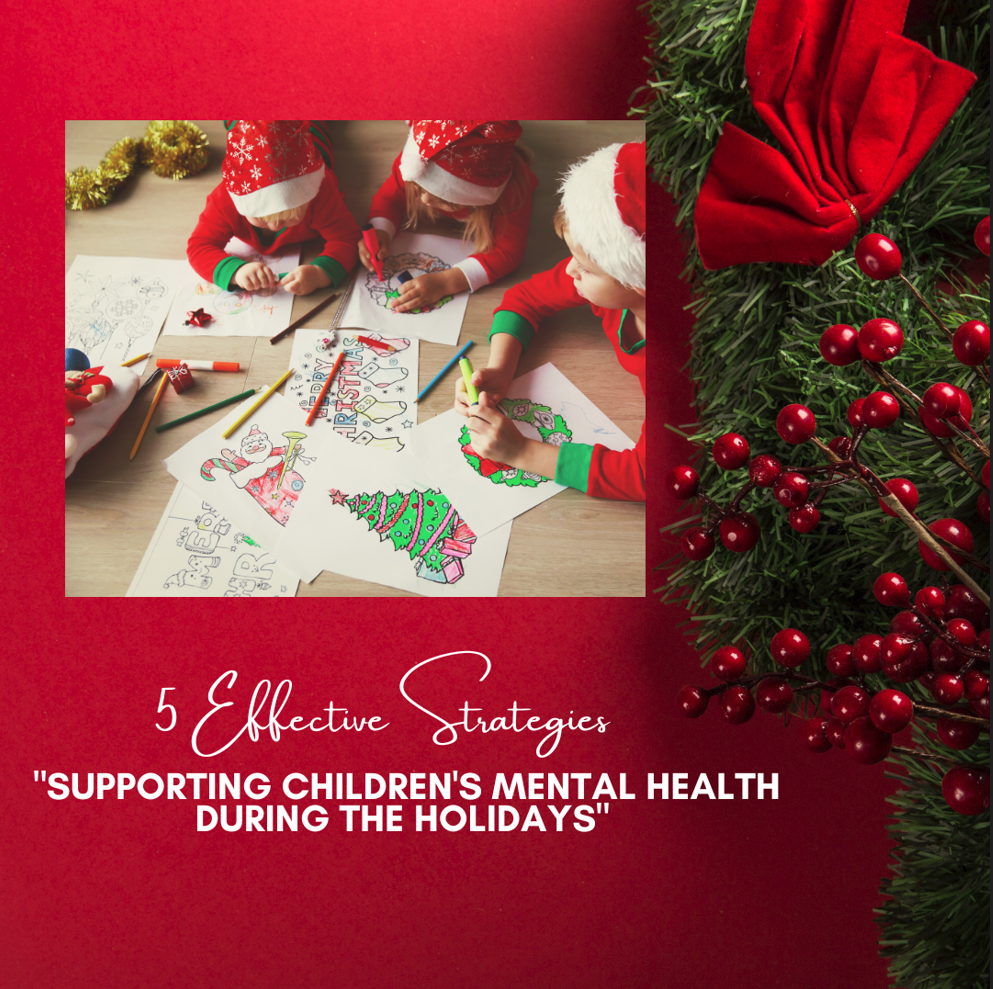
The holiday season often brings joy and excitement, but it can also present unique challenges for children dealing with mental health issues. As a parent or caregiver, it's essential to provide support and understanding during this time. Here are five effective strategies that I have found to help children navigate mental health challenges during the holidays:
1. **Maintain Routine and Structure: ** Children thrive on routine, and disruptions during the holidays can be unsettling. Try to maintain a sense of normalcy by sticking to regular bedtime routines, meal schedules, and activities. Consistency can provide a sense of stability, which is especially beneficial for children dealing with anxiety or mood disorders. (This can also help caregivers deal with anxiety and feelings of being overwhelmed that can often accompany the holidays)
2. **Open Communication and Validation: ** Create a safe space for children to express their feelings and concerns. Encourage open communication by actively listening without judgment. Validate their emotions and reassure them that it's okay to feel a range of emotions, whether it's excitement, stress, or sadness. Acknowledge their feelings and offer empathy and support.
3. **Manage Expectations and Boundaries: ** The holidays often come with heightened expectations, which can be overwhelming for children with mental health challenges. Discuss and manage expectations together, setting realistic goals for activities and celebrations. Establishing clear boundaries and limits can alleviate stress and create a more manageable environment.
4. **Practice Self-Care as a Family: ** Self-care is essential for both children and caregivers. Encourage activities that promote relaxation and well-being, such as mindfulness exercises, creative outlets, or outdoor activities. Engage in self-care practices as a family, emphasizing the importance of taking breaks and managing stress.
5. **Create Meaningful Traditions and Activities: ** Foster a sense of connection and joy by creating meaningful traditions and activities that cater to your child's interests and comfort levels. This might include crafting sessions, movie nights, nature walks, or volunteering together as a family. Focus on activities that promote bonding and positive experiences.
Remember, each child is unique, and their needs may vary. Professional guidance from a counselor or therapist specialized in children's mental health can provide additional support and guidance tailored to your child's specific needs.
By prioritizing open communication, maintaining routines, managing expectations, practicing self-care, and creating meaningful traditions, you can help children navigate the holiday season while fostering their mental well-being. Your support and understanding as a caregiver are invaluable in helping children feel safe, understood, and supported during this time.
Above all, do not forget to have fun! Enjoy the holidays and remember, YOU GOT THIS!
- Euronda





